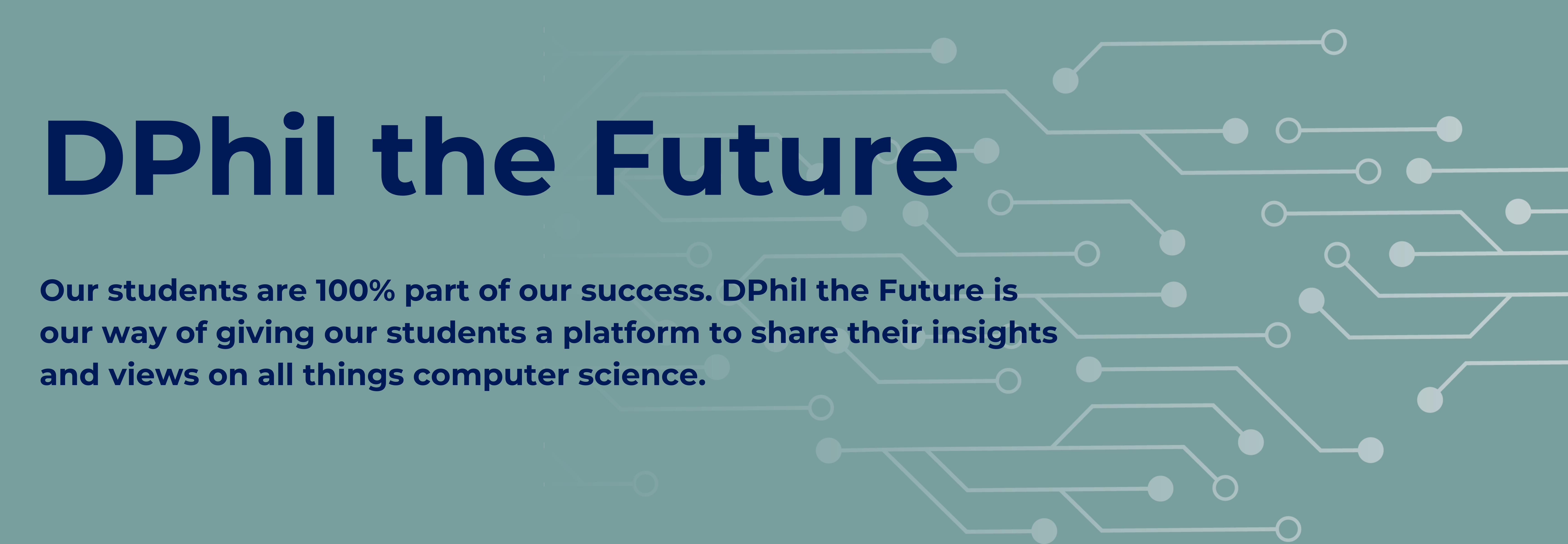DPhil the Future: Passing down the passion - the importance of inspiring the next generation of AI scientists
Posted: 20th February 2025

On 28 January 2025, DPhil student Emma McMillian presented ‘AI and Society: The Implications of AI in Our Everyday Lives’, during the Oxford Women and Nonbinary People in STEM Series. Now, Emma discusses the impact of communicating research to younger generations of scientists.
Providing opportunities by communicating research
When I was 11 years old I loved maths. I was inspired by numbers, geometry, space, and the world around me. In the 6th grade I took my first computer science class. I was fascinated by the application of maths to code – turning ideas into something tangible. Whether making a game or creating artwork, I enjoyed bringing my ideas to life on the screen.
Now, at 23, I work as a Department of Computer Science Student Ambassador, visiting schools, and engaging with hundreds of students interested in computer science. My goal in this role is to broaden access to higher education. Recently, Mansfield, St Catherine’s, and St Anne’s College ran their annual Women and Non-Binary People in STEM day featuring the Department of Computer Science. As an ambassador I had the opportunity to present the topic of ‘AI and Society: The Implications of AI in our Everyday Lives’ to over 70 girls in years 11-12. Many of these students had never met an AI researcher, and had you asked them to sketch a picture of one they most certainly wouldn’t have drawn me (a young, smiling African American woman that loves computers, sports, and travel). Most of their exposure to AI had been through ChatGPT or Snapchat MyAI.
I had the privilege of introducing them to the broader importance of AI research, answering questions like, ‘What exactly is deep learning?’, ‘How can we ensure autonomous vehicles are safe?’ and ‘If everyone's heart is different, how can we generate realistic image reconstructions with just one AI model?’. One key message to take away from the presentation is that nurturing young, curious minds is vital for the future of research.
There are many careers in research, science, and technology that are open to the youth, they just need encouragement and confidence to seek them out. DPhil student Emma McMillian
Critical research with clinical outcomes
A core part of my talk emphasised the significance of AI research, particularly in my field, computational cardiology. Computational cardiology applies modern solutions to the world’s deadliest health challenge according to the World Health Organization: heart disease. My research focuses on 3D cardiac MRI reconstruction using deep learning, aiding doctors in visualising heart disease from complex imaging data. Being a researcher necessitates rigorous scientific inquiry into some of the most pressing challenges we face as a society.
In my research, I see the public as my co-authors. The ability to use real human MRI data is critical for developing robust machine learning models that capture the diversity in the human population. This field of research has tangible clinical outcomes, helping doctors make more accurate diagnoses and improve patient care.
Almost as important as model development is ensuring that these advancements are accessible and beneficial to a broad and diverse population. AI technology exists to serve society, and as researchers we must shape our goals around society's priorities and concerns. Research is a stepwise process, as doctoral students graduate, their research will need to continue. It is imperative to have young scientists that are interested in carrying on the innovation.
The future of AI research and public engagement
The next generation of AI scientists will shape the future of technology, healthcare, and many other fields. Encouraging young students to engage with AI research and showing them the real-world impact of these advancements is essential.
New technical challenges will continue to persist in our lives, but it is our job as researchers to innovate and find solutions. The future of AI research depends not just on technological breakthroughs but also on fostering a community of passionate, diverse, and inquisitive minds dedicated to solving the most critical problems of our time. DPhil student Emma McMillian
By actively engaging with the public, breaking down barriers to access, and inspiring the next generation, we ensure that AI research can positively change the lives of many people around the world.
